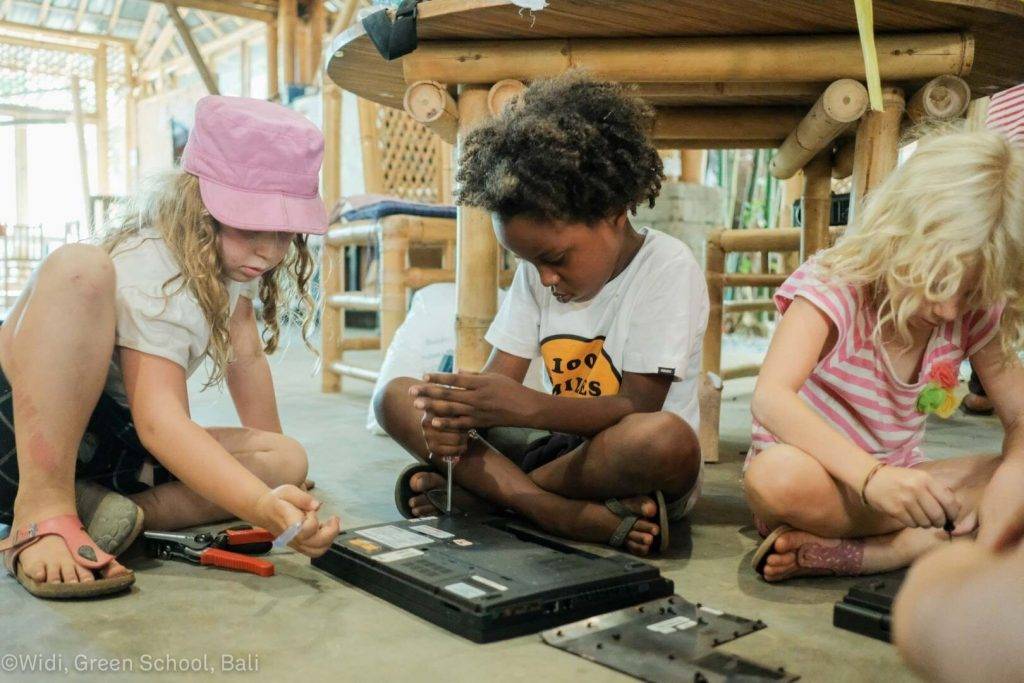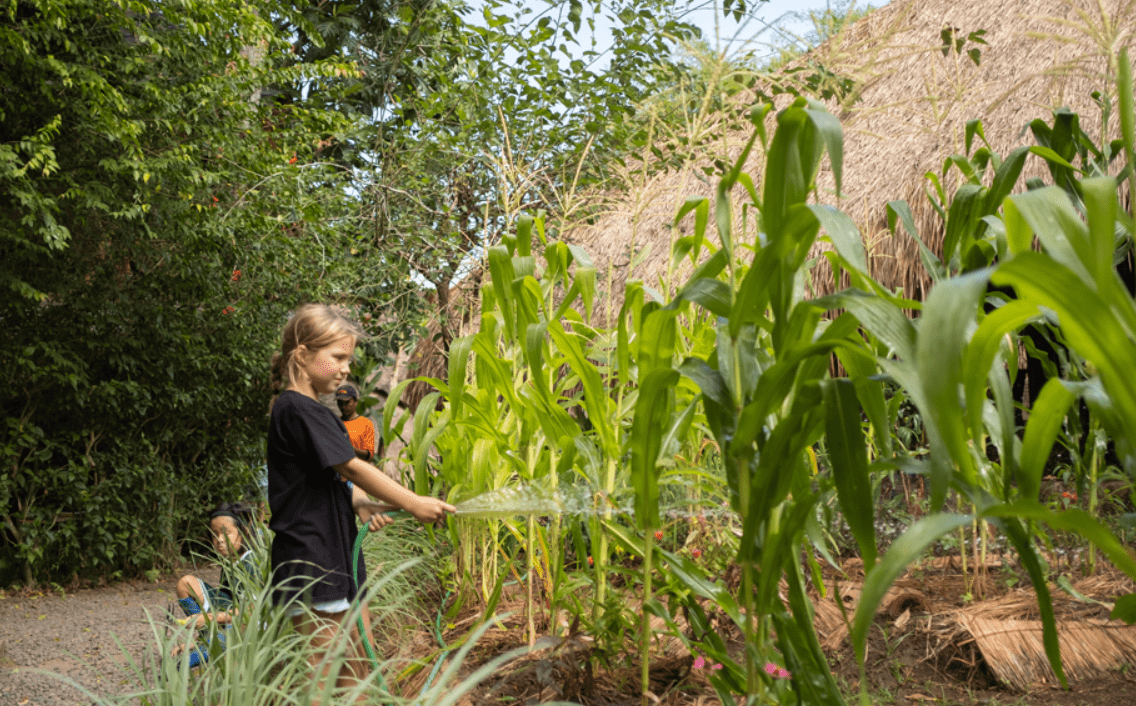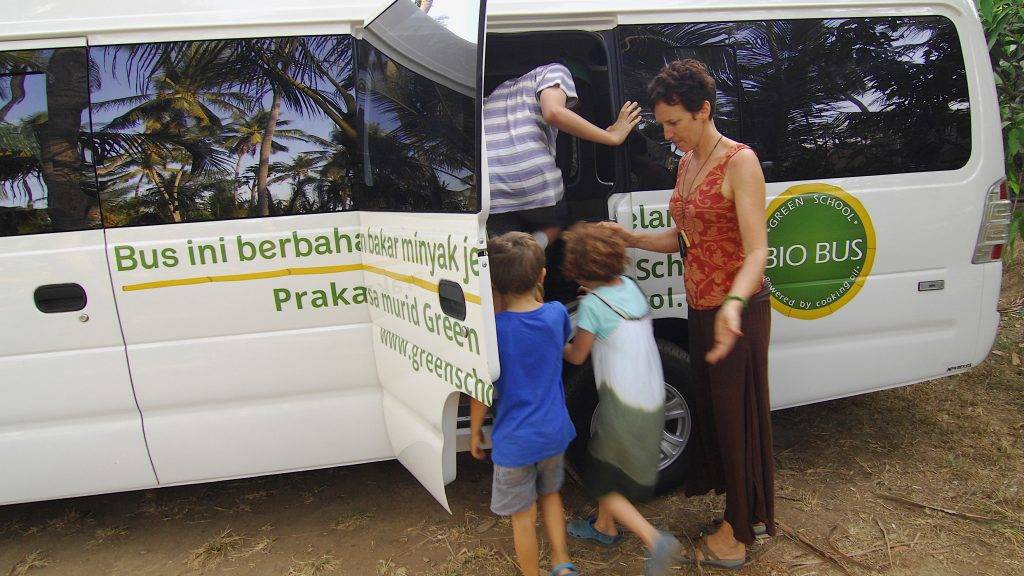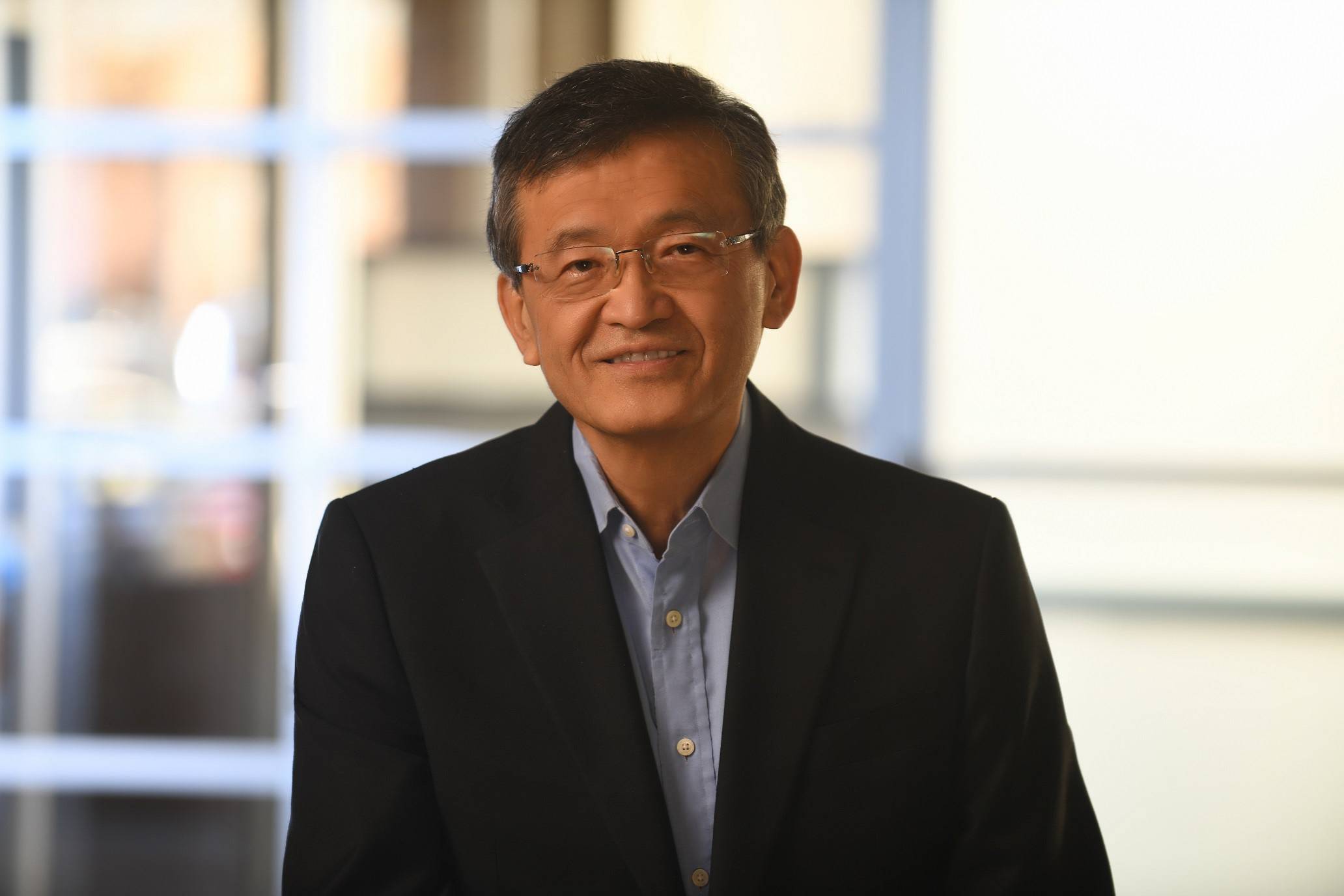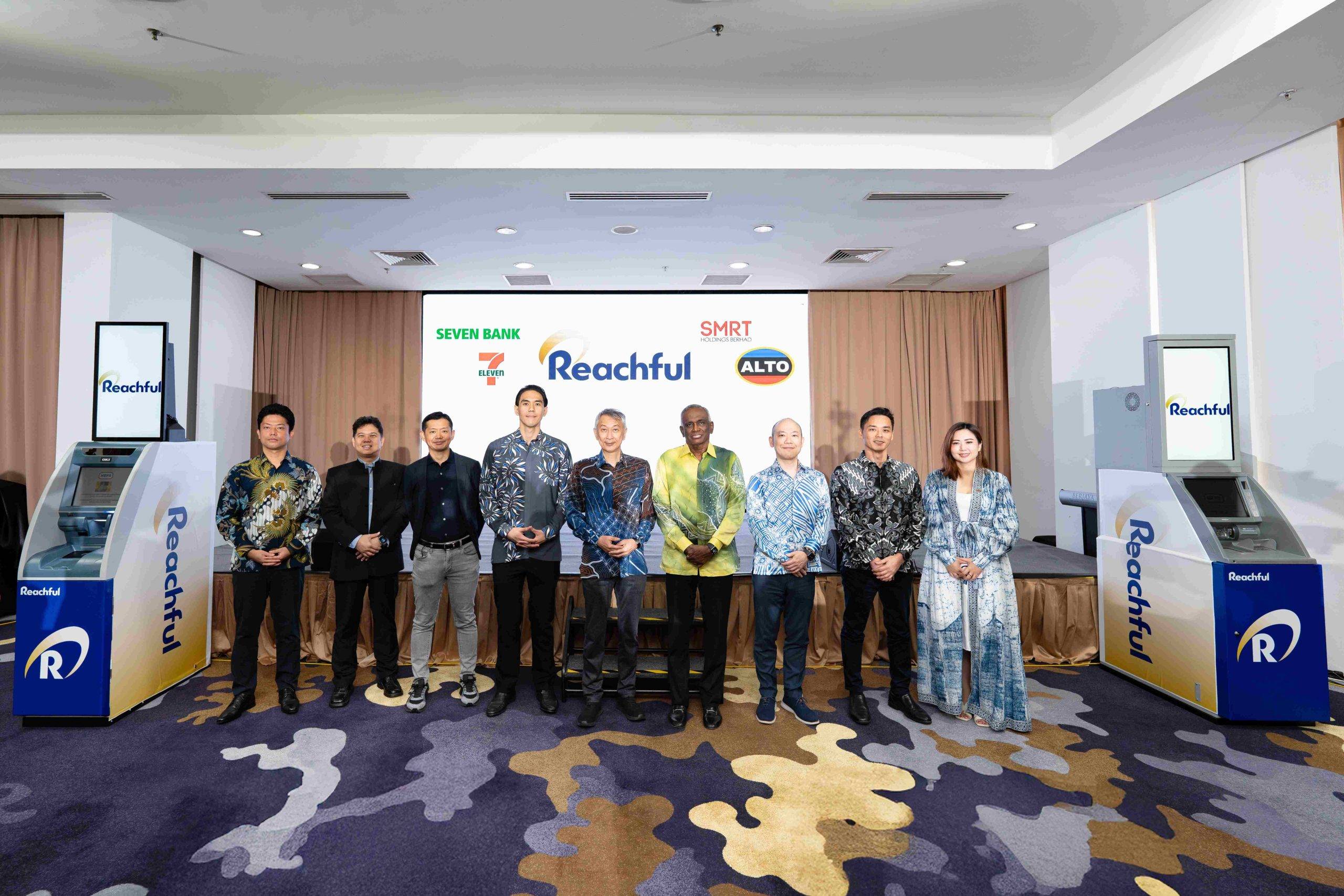At some point while amidst all the sustainability buzz, we have to ask ourselves what the word actually means. Are we taking on initiatives merely to meet reporting requirements, or are we taking the action to where there can be true impact – the schools where younger generations can experientially learn how to respect earth and all her resources.
When speaking with co-founder John Hardy, I remember thinking of Green School Bali as one that prioritizes beauty, creativity, happiness, innovation and continuous learning in education. A friend who put the both of us in touch had asked, “You heard the back story right? JH also designed unique silver jewelry in a beautiful communal workshop and his designs can now be found in boutiques all over US and Europe.”
After JH, or John Hardy, sold his business to private equity, he proceeded to build a progressive school made of bamboo in the heart of the jungle in Bali, Indonesia.
He described the school as having beautiful wall-less bamboo classrooms and children that are smiling. “When people are happy, good things happen. When people are unhappy, really bad things happen!,” John had quipped at one point.

John Hardy of Green School Bali
It Takes A Community To Raise a School of Activists
He also thinks that everyone enjoys beauty in all sense of the word.
“People are driven by beauty. So when schools are as ugly as they are, I mean, I went to a school when I was young, and it was built by the same people that built the prison, the insane asylum, the hospital… they were efficient but they were also absolutely without any beauty or love.”
John expressed his idea of an ideal school compared to the ones he used to go to by saying, “Harry Potter had a pretty good deal. You know, he had a great school. I would have liked to go to that school.”
One thing that Hogwarts would have had in common with Green School Bali (GSB) is fun. Besides natural and zen-like surroundings that are pleasing to the eye, the school uses interesting methods to teach an interesting curriculum.
“Harry Potter had a pretty good deal. You know, he had a great school. I would have liked to go to that school,”
We have heard about classrooms without walls, and one sees an example of how barriers are literally broken down, as one Grade 11 student (16 year old) named Brook, goes about his day at the school, using creativity to solve problems, learn language, and complete assignments and projects that are meant for graduate university level students.
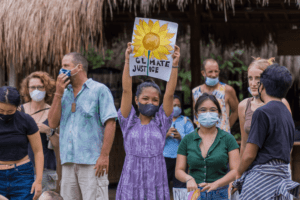
Tirta advocating for climate justice
Tirta Maharani, a 2023 graduate from GSB who is currently a Lincoln Scholar at Centre College in Kentucky, USA, said, “Green School really shaped me into being able to communicate with literally anyone.”
Local kids from the village also join after-school courses to learn English and participate in community integration program ‘Kul Kul Connection’ and other school programs like ‘Trash for Class’.
Community-powered, Nature-driven
The school’s students are driving change through projects that provide solutions as well as experiential learning. BioBus for example, runs on used cooking oil that are collected during regular Jalan Jalan (walkabout) activities – students visit restaurants and hotels across Bali to collect and turn them into biofuel for the Bio Buses.
Unused cooking oil is channeled into powering transportation instead of polluting waterways that can cause acidification that affects Bali’s ecosystem.
This was carried out in partnership with a local non-profit, Lengis Hijau (LH), and the glycerine by-product from making biofuel is actually made into bio soap and candles.
John also shared how the land Green School is on, used to be a garden. It has also been kept as a garden to grow much of their own food. There are also rice fields and John said, “We eat a lot of rice. But have you ever planted your own rice? Have you ever grown your own food?
“When you come to Bali, we’ll get you planting rice, because we have programs for planting rice, harvesting rice, husking rice, threshing rice, cooking rice, and sharing rice with your friends.”
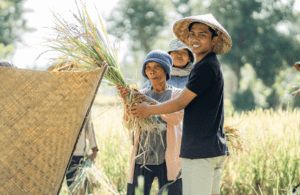
And so in this way, the school (which is accredited by the Western Association of Schools and Colleges, or WASC) has a curriculum that promotes sustainable skills, social enterprises, and progressive ideas about both.
John also wanted to share what he thought about the word ‘sustainability’, saying that it seems to imply “slowly destroying the world.”
He prefers the idea of ‘regeneration’ which is about actively rebuilding and improving the environment, instead. “If we think about it, (so many species like) tuna are disappearing. If we want to regenerate populations like tuna fish, keeping the last 10,000 alive is not enough. We need to do more than just sustain them!”
“When people are happy, good things happen. When people are unhappy, really bad things happen!”
Nearing the end of our interview, John wanted to leave a word of advice for the younger generation. “I see so many (kids) becoming a ‘something’. Even if they have great potential, they never break out (to be all they can be). For example, architects could be building for decades, but when they are nearing their end, they suddenly become ‘inspired’ or taken with the idea to create a ‘masterpiece.’”
Making the world a better place could stem from something as seemingly simple and small as pursuing our own individual passions. “Learn as much as you can, learn about the things that you think are important, and figure out what needs to be done and never become a ‘something,’” he said.
That’s what John Hardy did and is still doing decades later, with communities that are thousands in numbers across Green Schools around the globe.

